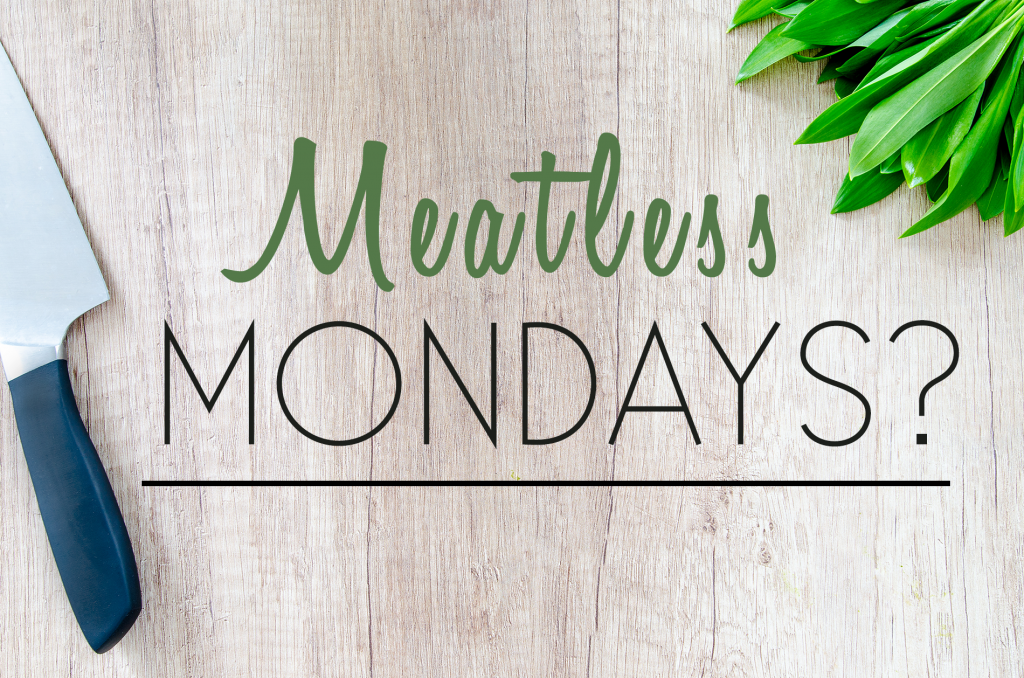Earlier this year Kristie Middleton released MeatLess, a book written to encourage people to cut down on their meat consumption. The book provides tips, tricks and recipes for anyone looking to reduce their intake of animal products without having to cut them out entirely.
Online, many readers have hailed the book a great success. Even Paul McCartney (husband of the late animal rights activist Linda McCartney and joint founder of Linda’s namesake vegetarian food range) has deemed it ‘a book to inspire positive change!’ A surprising enthusiasm from the longtime vegetarian given that, in her book, Middleton is keen to recognise that not everyone can go fully vegan. She emphasises the ways in which reductionism can help your health and the planet whilst not having to give up all your favourite animal product based foods. Recently Fritsche of the San Fransisco Chronicle has used the book as a shining example of what she calls ‘the softer side of vegetarianism.’

Over the past 15 years the idea of reducing meat intake has been gaining popularity. In 2003 the Meatless Monday initiative was launched with the goal of ‘reduc[ing] meat consumption by 15% for our personal health and the health of the planet.’ Last year forward thinking European cities Barcelona and Oslo both took action to show their commitment to the reduction of meat consumption. Given the negative health impacts of meat and dairy products, the idea has, unsurprisingly, been popular amongst many ‘clean eating’ omnivorous food bloggers such as Skinny Ms and Feed Me Phoebe.
What can a reduction in meat consumption achieve?
For your health: In recent years it has come to light that eating meat increases an individual’s risk of cancer. In the short term people who follow a plant based diet often see a drop in their blood pressure, lower their cholesterol, experience more stable blood sugars and often lose weight.
For the environment: By avoiding meat for a day, each person can save 1,100 gallons of water, the equivalent of 20 pounds of carbon dioxide and 30 square feet of rainforest.
For the animals: For each two days that someone chooses to avoid animal products they can save an animal’s life.
However, despite it’s rise in popularity, at the same time as a rise in veganism, meat consumption continues to grow globally. This is possibly a sign that reductionism initiatives like Meatless Monday aren’t actually reducing an individual’s overall meat consumption.

Does reductionism belong in veganism?
Reduction of meat consumption is a highly debated subject within the vegan community with some believing it has no place in the community at all. Many vegans choose vegetarianism before veganism, when transitioning from a meat inclusive diet, as for some the shift can seem daunting and often impossible. Given that most vegans have not been eating a plant-based diet since birth, many members of the community can relate to the transition and empathise with the need to eliminate animal products slowly. In this sense reductionism certainly does have a place. The world we live in is built around the existence of animal agriculture, whether in the form of burgers or shampoo ingredients, and veganism is more of a journey than a destination where you might be deemed the ‘perfect vegan’ upon your arrival.
However, if you take a quick glance through the positive reviews for Middleton’s book, it is clear to see that those who praise her work do not extend the same courtesies to vegans. Readers have claimed it isn’t ‘preachy’ or ‘pushy’ or ‘a scary vegan rant about the horrors of gestation crates.’
The reviews contain the sort of rhetoric many vegans are used to but it is also the the rhetoric many committed vegans find offensive, upsetting and debilitating. For many, veganism is more than a lifestyle choice, it is activism, it’s a pledge to tell the truth about the industry of animal agriculture. In an unfortunate twist it seems the biggest advocates of reductionism are those who dislike the community they could be stepping towards.
In this way, champions of reductionism harm the movement. Instead of allowing reductionism to be an achievable stepping stone towards a plant based life, they demonise the very people who are making lifestyle choices that help the overall health and environment of the world around us.

Ultimately, whatever the reason someone would choose to reduce their consumption of animal products, it will never have the same impact that going fully vegan would have. Reducing your consumption of meat might reduce your risk of cancer slightly, but eliminating it will reduce it dramatically. The environment may benefit from your 52 days a year animal free but it will need a much bigger commitment to begin to thrive again. The 26 animals you save per year is a start but does nothing to comfort the 172 others that perished for the sake of your plate.
As a step towards a healthier, more ethical world reductionism is welcomed but it is by no means the finish line. If vegans and reductionists were to embrace each other, rather than seeing each other as adopting the wrong approach to diet and lifestyle, it would allow reductionists to aspire to veganism as an end goal and vegans to support those who are taking their first steps.
The public reception of publications such as MeatLess only increase the divide and stop the positive change McCartney was so keen for the book to inspire.


